Two of the TFD members have been to Israel now, both of which insisted that the rest of us go and visit. We are simply just waiting for the next flight deal!
Varud of Bicoastal Cooks, who last wrote about Cairo, Florence, Lisbon, Machu Picchu, Medellin, Santiago de Chile, Buenos Aires, Lofoten Islands, Norway, Ushuaia, Argentina, and Patagonia, Argentina is back with his practical travel tips for Israel
If you would like to write about your recent travel experiences on The Flight Deal, submit your pitch here.
======
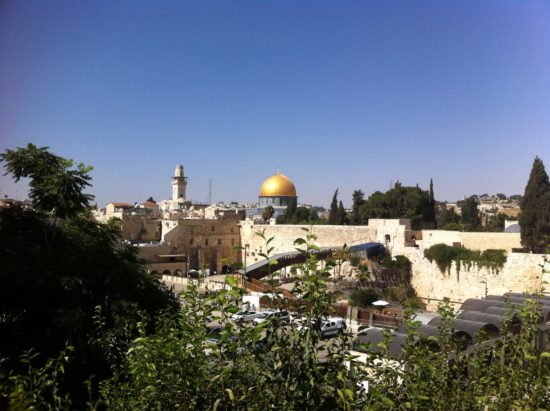
Old Town Jerusalem—so much history in one place – Photo: (c) 2016 – Varud Gupta of Bicoastal Cooks
Safety
Safety was my biggest concern when I decided to travel to Israel, and since others might feel the same way, I want to start this piece on that topic. Firstly, I’m a born and raised US citizen with Indian ethnicity, details that are important as we continue along. In my experience, I have found that the American media coverage of the situation here focuses on just outliers rather than daily life. In short, I never felt unsafe for any reason other than preconceived notions.
This is not to say that dangerous events were not and are not happening— in my first morning here, a failed bomb attempt occurred a few blocks down from the Jerusalem center. You will notice police constantly patrolling areas and many security check points at tourist sites. Below are a few personal experiences and ideas to keep your trip as safe as possible.
Around Town: This is specifically for Jerusalem, although much of this may also apply to Tel Aviv. The same morning as the failed bombing, I was pulled aside by the police and questioned for roughly 10 minutes. This happened near Damascus Gate, which leads us to Safety Tip #1: be extremely careful at the gates, areas of high activity, and religious sites. Security tends to be higher at these regions, as well as at non-Jewish sectors like Damascus Gate. When I was stopped by the police, they immediately asked for ID. Safety Tip #2: international tourists should definitely carry their passport with them. Security normally loosens up on you when they see you are not from the region. The officer mentioned that he saw me looking over to the team a couple of times and then asked me a series of questions such as: why are you here, where are you going, etc. Safety Tip #3: just answer honestly. I replied that it was really hot so I decided to take a seat and figure out where I had walked to and where I wanted to go next. In retrospect, Safety Tip #4, I should have just planned out my route ahead of time.
I cannot be 100% sure why I was actually pulled aside. Prior to the trip, I was informed by friends that racial profiling often comes into play—but I also met a white-skinned Jewish guy from Toronto that was also questioned the same way. So anyone should be ready for questioning—especially on days of high alert or other incidences (such as the failed bombing that morning). Maybe also try to keep up with the news so you are aware of any incidences and/or ongoing alerts.
Airport: An electronic visa system has been implemented, which means you no longer need to fear a passport stamp if travelling to a country after Israel that doesn’t recognize Israel. On the entry, I would be (Safety Tip #5) prepared with information regarding why you are visiting and where you are staying. I was surprised that I was done with entry security within 5 minutes. Make sure that you keep that entry visa card as it is important for additional security checks in places like Jerusalem or hotels.
It’s on the exit that most people have their stories to tell. Here’s mine, and spoiler alert, it wasn’t anything special. The overall exit process took under an hour, but I would plan for an hour to be safe. First, you have to get through an initial round of questions (located to the left of the security) about your visit and plans (remember Safety Tip #3). After getting your new yellow sticker, you can now proceed through security, which is a more diligent checking with everyone’s bags being opened, swabbed for explosives, etc. I made a dumb mistake here and had a suspicious looking box of tissues that I was conned into buying while in Cairo (and for our final safety tip, just don’t act suspicious or carry suspicious things), but despite that and my profile matching those of more suspicion, I got through these two steps with no problem or extra security.
The last step is the exit passport control, which was my favorite, as the biometric passport lane isn’t just for registered users as it is in some other countries; any biometric passport will work to get your exit visa card here.
As with most places to visit, understanding the history and culture is an important part of travelling—but for Israel, this is essential and can help guide your decisions and plans as a tourist. Jerusalem has easily become one my favorite places on this trip and I hope these safety tips help it become yours.
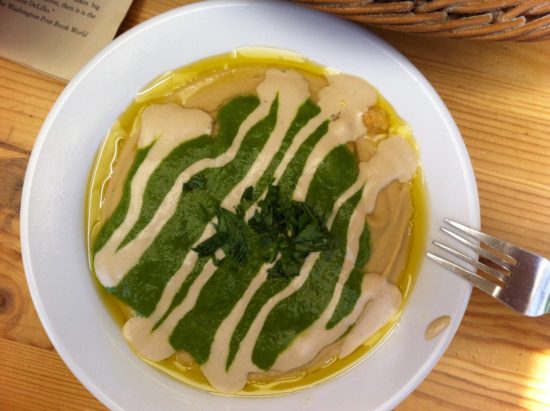
The hummus here is life-changing—and no two places make it the same – Photo: (c) 2016 – Varud Gupta of Bicoastal Cooks
To Do
Moving on to more fun topics, there are three main cities people visit (not including Eliat):
Tel Aviv: Think Miami–bros in tanks, beach lifestyle, and flip flops are perfectly acceptable attire. Beaches, old town Jaffa, parties, and a rising culinary scene are all the highlights in this modern, tech city. Buses are the only real public transportation option, but most frequent paths (ex. airport to bus station) have great connectivity.
Jerusalem: There is definitely the most to do here from cultural, religious, and historical perspectives. At the top of my list is exploring the old town area and the holocaust museum—a remarkable experience. There are both trams (L1 to Mount Herzl/Holocaust Museum) and buses (66 to get from Town Hall to the Israeli Museum) to get to some of the sites; but if you are centrally located, everything else is walking distance—the Market (Mahane Yehuda) to the Old Town is about 30 minutes along Jaffa Street. The market is a great option for lunch as well as it turns into a trendy, pub street at night, an alternative to dinner/drinks in the Ben Yehuda area, which is also nice.
Haifa: And lastly is this port city further up north, primarily known for the UNESCO Bahai World Center, making it great day trip spot to escape some of the bustle.
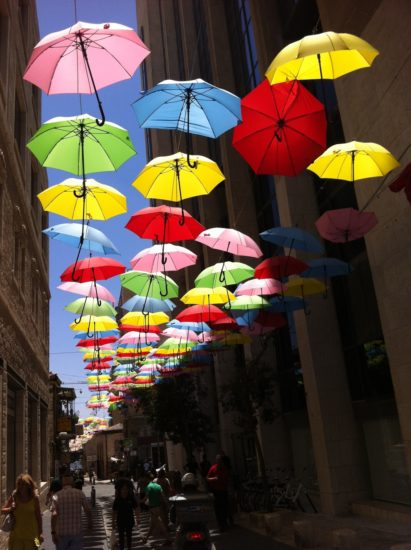
The streets of Jerusalem – Photo: (c) 2016 – Varud Gupta of Bicoastal Cooks
Costs & Practicalities
Exchange Rate (07/21/16) 1 USD = 3.85
- Tipping is expected similar to the US in the 15% range
- Buses in Tel Aviv cost around 10 Shekels, while Jerusalem is around 6 shekels
- Shuttles between Tel Aviv and Jerusalem is 30 Shekels (around a 50-minute journey between the cities and 20-minutes between Tel Aviv and the central bus station)
- An alternative to both buses and taxis is a shared taxi, or sherut, which are yellow minivans that run frequent short and long-distance routes (Jerusalem to Airport 65 shekels, Tel Aviv Central Bus Station to Jerusalem 35 shekels)
- Meals will range from 15-25 shekels for street foods, like shawarma or hummus, to about 40-60 shekels at sit down restaurants (i.e. Azura in Mahane Yehuda)
- Wi-Fi is readily available and reliable at tourist sights, the airport, spots around the cities, and restaurants
- Travelling on Shabbat is very difficult and I would advise you to take this into consideration when making your plans; the bad news is that most buses are closed during the day, and while sheruts will still run, they will be crowded, making it difficult to secure a spot—the marginally good news is that taxis are still frequently running and the price can be flexible (app options like “Gett” are the best way to go if you have cellular data)
About The Author:
Varud’s life is food–eating, reading, exploring, and creating. Voted Forbes 30 Under 30 for ‘Most Clueless Individuals’, he jumped ship from his management consultant lifestyle in October 2015 and embarked on a culinary journey to learn about cuisines around the world. His first book documented an experiment in Recipe Development (how to create and gain inspiration for original recipes) while his most recent novel narrates the journey of leaving the US to travel to Argentina and learn about Asado, or Argentine BBQ. Follow him on his blog, Bicoastal Cooks, instagram or Twitter.
=====
To make sure you receive our latest deals, LIKE our The Flight Deal Facebook Page, follow us on Twitter @TheFlightDeal, Threads @TheFlightDeal or The Flight Deal WhatsApp channel or subscribe to The Flight Deal RSS Feed or Subscribe via Email (Once a Day)
The Flight Deal does not sell travel products or services. We provide you with information about third-party travel suppliers’ offers, and link you to their sites. The information posted by The Flight Deal is valid at the time of publication. However, we have no control over the suppliers, and we therefore do not warrant or guarantee that their offers will not change or become unavailable. Nor are we responsible for their products, services or site content. Please see their sites for their most up-to-date offer information and all applicable terms and conditions.
Sign up to receive The Flight Deal Daily DealsLetter, to stay up to date with the latest and greatest flight deals available.

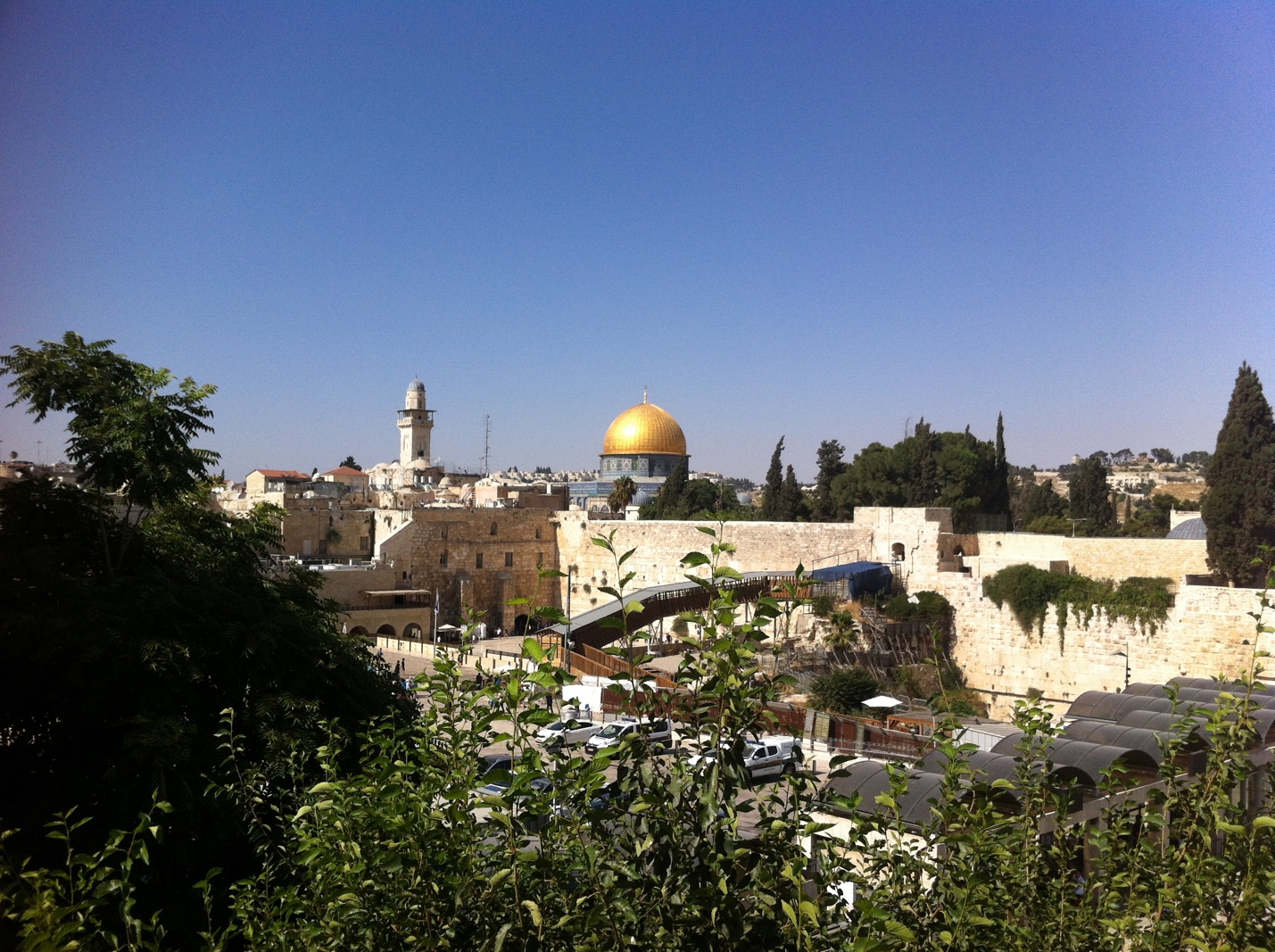
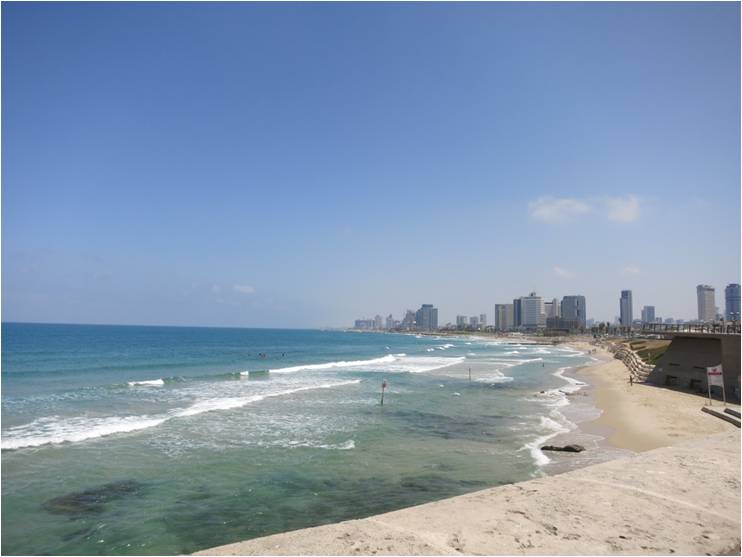

No Comments